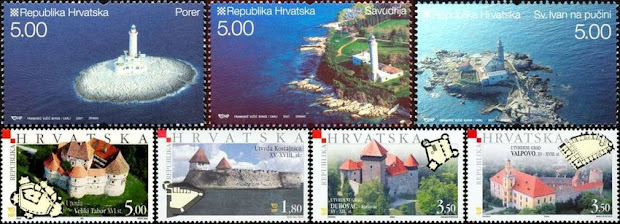President Bush said in spring 2008 that he was happy to invite three Balkan nations to join NATO: Croatia, Albania and Macedonia. When Bush spoke these words, I realised how angered Croats would be by this formulation because more than sixty percent of the Croats don't consider Croatia as a Balkan country. You can read this and many other findings in the Gallup Balkan Monitor.
The fact that Croatia is included in the Balkan Monitor already shows the problem: whatever Croats think about themselves and their country, most of the world considers Croatia a Balkan country.
 Is that fair? I have heard many reasons why Croatia should not be called a Balkan country and some of them make sense. But looking at the whole picture, I think it is fair to say that Croatia is part of the Balkans. History, food, music, language, geography - you name it. There is more that Croatia has in common with other Balkan nations than with non-Balkan nations.
Is that fair? I have heard many reasons why Croatia should not be called a Balkan country and some of them make sense. But looking at the whole picture, I think it is fair to say that Croatia is part of the Balkans. History, food, music, language, geography - you name it. There is more that Croatia has in common with other Balkan nations than with non-Balkan nations.
The aversion against the label Balkan comes, of course, from the many negative associations: war, bloodshed, ethic hatred, violence and so on. Instead of denying that Croatia belongs to the Balkan it would make more sense to demystify and decriminalise the concept of the Balkans. Once you have eaten burek in Sarajevo, wandered through the Rila Monastery in Bulgaria or Diocletian's palace in Split, seen the confluence of the Danube and Sava from Belgrade's Kalemegdan fortress or marvelled at the city walls of Dubrovnik, you will think: this is a nice part of Europe.
The fact that Croatia is included in the Balkan Monitor already shows the problem: whatever Croats think about themselves and their country, most of the world considers Croatia a Balkan country.
 Is that fair? I have heard many reasons why Croatia should not be called a Balkan country and some of them make sense. But looking at the whole picture, I think it is fair to say that Croatia is part of the Balkans. History, food, music, language, geography - you name it. There is more that Croatia has in common with other Balkan nations than with non-Balkan nations.
Is that fair? I have heard many reasons why Croatia should not be called a Balkan country and some of them make sense. But looking at the whole picture, I think it is fair to say that Croatia is part of the Balkans. History, food, music, language, geography - you name it. There is more that Croatia has in common with other Balkan nations than with non-Balkan nations.The aversion against the label Balkan comes, of course, from the many negative associations: war, bloodshed, ethic hatred, violence and so on. Instead of denying that Croatia belongs to the Balkan it would make more sense to demystify and decriminalise the concept of the Balkans. Once you have eaten burek in Sarajevo, wandered through the Rila Monastery in Bulgaria or Diocletian's palace in Split, seen the confluence of the Danube and Sava from Belgrade's Kalemegdan fortress or marvelled at the city walls of Dubrovnik, you will think: this is a nice part of Europe.





0 reacties:
Post a Comment